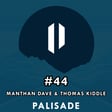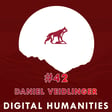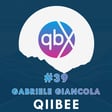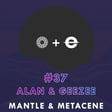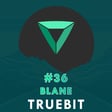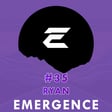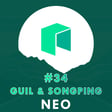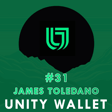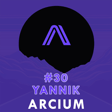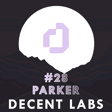
#17 Monetizing your car's data with DIMO | POT: The Cryptocurrency Podcast
Rob is the co-founder of DIMO, a blockchain-based IOT solution with a focus on making cars smarter. With DIMO, users can monetize their vehicle's data and access brand new features for their car.
The problem that DIMO have identified is that cars lag drastically behind in the realm of connectivity and smart technology.
Rob’s vision with DIMO is to bring the digital sophistication of smartphones to vehicles. By leveraging blockchain technology, DIMO aims to create a decentralized platform where cars of any make or model can establish a digital identity and interact seamlessly with a network of services and applications. This shift not only enhances the functionality available to car owners but also introduces new layers of efficiency and convenience that are currently missing from most automotive experiences.
Why Blockchain?
The automotive industry is highly fragmented with hundreds of manufacturers and service providers who operate in silos, making universal standards and cooperation challenging. Blockchain technology provides a neutral, decentralized ledger that can serve as a trusted repository of data accessible by various stakeholders without the need for intermediaries.
For vehicles, this means everything from secure, peer-to-peer car sharing services, smarter and more efficient insurance models, and even the ability to have cars autonomously perform tasks like parking and paying for their own parking fees. Essentially, blockchain can do for cars what the internet did for information — make it universally accessible and infinitely more useful.
The Role of DIMO in Vehicle Connectivity
DIMO acts as a catalyst in this transformation by offering both hardware and software solutions that allow vehicles to connect to its blockchain platform. The platform not only ensures that cars can communicate with each other and with different apps and services but also maintains robust security and privacy controls, allowing owners to control who gets access to their vehicle's data.
This connectivity is achieved through a combination of native integrations with vehicle manufacturers and universal devices that plug into a car's OBD (On-Board Diagnostics) port. These devices enable older vehicles, not just new models, to connect to DIMO's network, making the platform widely accessible.
A Peek Into the Future of Connected Vehicles
The potential applications of a fully integrated vehicle connectivity platform are vast. Imagine a world where your car not only drives you safely to your destination but also communicates with city infrastructure to find parking, negotiates traffic efficiently, and even makes service appointments. Or consider the possibilities in logistics and fleet management where every vehicle's location, condition, and availability are tracked in real time, with all data securely stored and shared on a blockchain.
Moreover, the data generated by these connected vehicles can be immensely valuable. By analyzing data on driving patterns, vehicle performance, and maintenance needs, companies can offer more personalized and cost-effective services, from insurance to repairs.
This podcast is fueled by Aesir, an Algorithmic cryptocurrency Trading Platform that I helped develop over the last 2 years that offers a unique set of features.
